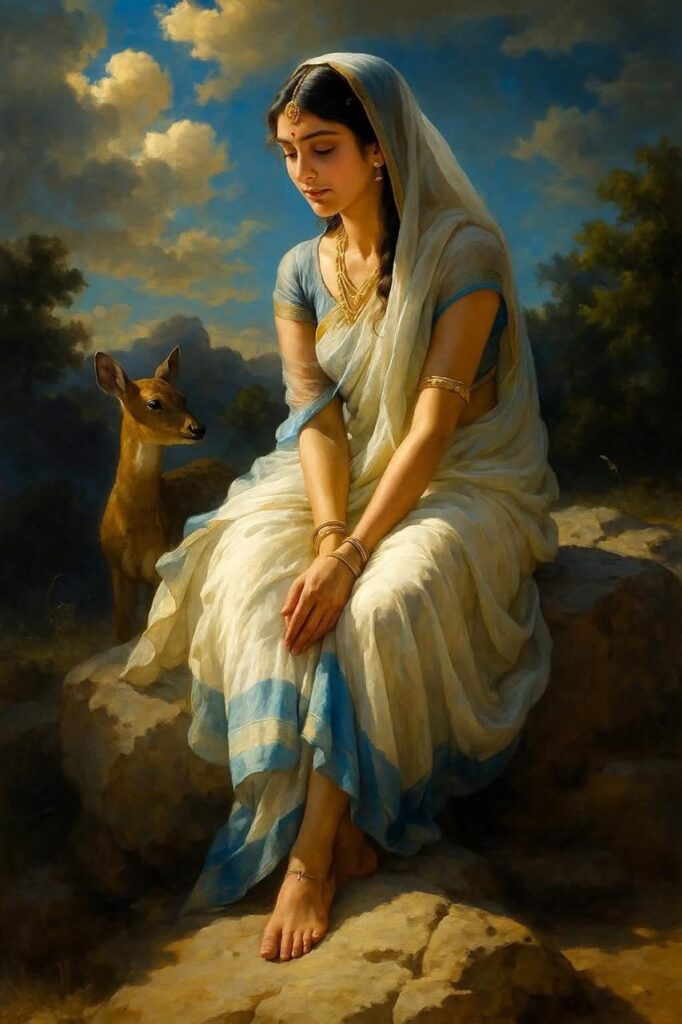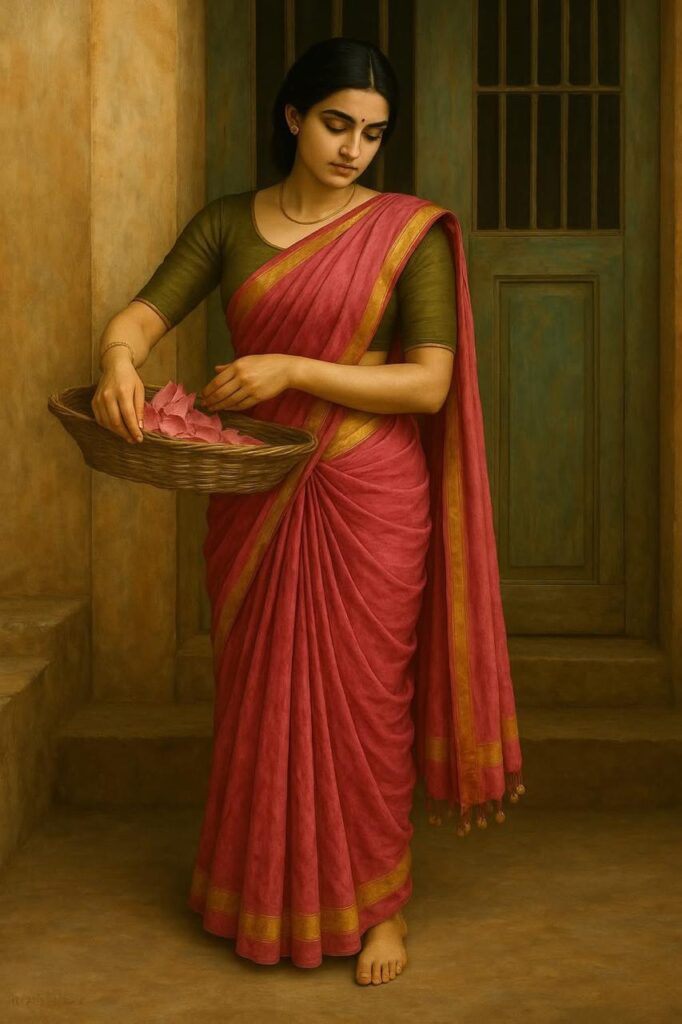Life in Shasan Village : A Brahmin’s Story
By Lokanath Mishra
In a famous Shasan village of Puri district, Lilabati, a young Brahmin girl, shares her experiences of growing up in a community deeply rooted in tradition and heritage. From a tender age, Lilabati was taught the significance of adhering to certain rules and traditions that are deeply ingrained in her community.

As a Brahmin, Lilabati’s family follows a strict vegetarian diet, and on special occasions, they offer non-vegetarian food to the Goddess Shakti during worship. Marrying within the same caste and sampradaya is a tradition that is deeply rooted in her community. Lilabati’s surname, Mishra, commands respect, and she is often addressed as “Mishra ji” by her teachers.
Brahmins are expected to be well-versed in their history and mythology, including the stories of Prabhu Shri Jagannath temple, Mahalaxmi Purana, Durga puja, Lord Rama, and Shri Krishna. Lilabati’s family takes pride in their knowledge of these epics, and debates about historical events, such as the Odiya Bhagavad, Mahabharat, and Ramayana, are common.

There is a hierarchy within the Brahmin caste, with certain surnames, such as Mohapatra(Samanta) Mishra and Rath, being considered more prestigious than others. This hierarchy can influence social interactions and relationships within the community.

Brahmin families place great importance on observing various fasts and festivals throughout the year. Ekadashi, Shivratri, Guru Bara Puja, Ganesh Puja, Saraswati Puja, Durga Puja, Shri Gundicha, Shitala Sasti, Janmastami, Radhasthmi, and Navratri are just a few examples of the many significant days that are observed with great devotion.
During Mahalya, Diwali, and the day of the death of the ancestors, Lilabati’s family observes Shraddha and Pindadaan, a ritual to pay tribute to their ancestors.

As a Brahmin, Lilabati is expected to embody certain values, such as modesty and respect for tradition. In her village, dressing modestly is seen as a sign of respect for one’s heritage. Lilabati is also expected to recite Sanskrit slokas and visit Shri Jagannath temple regularly.
Life as a Brahmin in Shasan village is marked by a strong sense of tradition, community, and cultural heritage. From a young age, individuals like Lilabati are taught the importance of adhering to certain rules and values that are deeply ingrained in their community. While there are expectations and responsibilities that come with being a Brahmin, the sense of pride and belonging that comes with being part of this community is undeniable.

In the Sasan village , the Brahmins play a vital role in maintaining the spiritual and social fabric of the community. As guardians of tradition and heritage, they are dedicated to the welfare of society, upholding the values of dharma and karma.
The Brahmins are revered for their deep understanding of the Vedas, the Puranas, and the epics of Ramayana and Mahabharata. They are the custodians of ancient wisdom, passing down the sacred traditions and rituals to future generations. Their knowledge of the scriptures and their ability to interpret them provide guidance and solace to the community.

The Brahmins of Sasan village are meticulous in their observance of rituals and ceremonies, ensuring that every aspect of life is infused with spirituality. From the sacred thread ceremony to the last rites, they perform their duties with utmost devotion and precision. Their role in conducting pujas, havans, and other sacred rituals is indispensable to the community.
As guardians of dharma, the Brahmins of Sasan village uphold the principles of righteousness and morality. They are the torchbearers of tradition, ensuring that the community adheres to the values of honesty, integrity, and compassion. Their presence is a reminder of the importance of living a virtuous life, guided by the principles of dharma.

The Brahmins of Sasan village are not only spiritual leaders but also mentors and guides. They provide spiritual guidance to the community, helping individuals navigate the complexities of life. Their wisdom and knowledge are sought by people from all walks of life, and their blessings are considered auspicious.
The rahmins of Sasan village play a vital role in maintaining the spiritual and social harmony of the community. As guardians of tradition and heritage, they are dedicated to the welfare of society, upholding the values of dharma and karma. Their role is a testament to the enduring power of spirituality and tradition in shaping the lives of individuals and communities.
